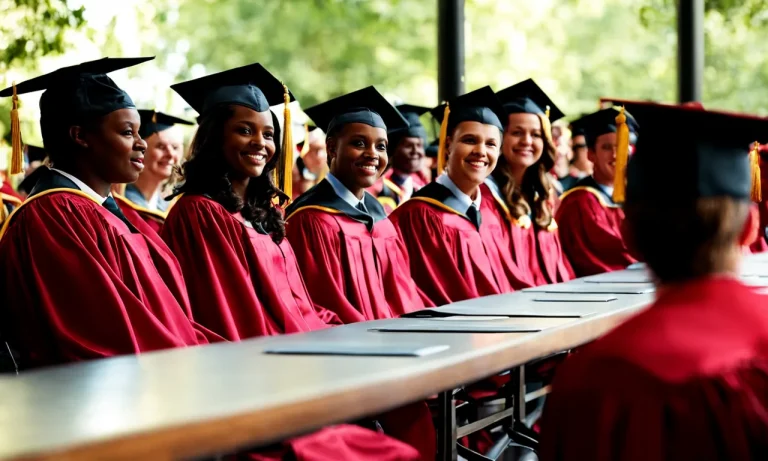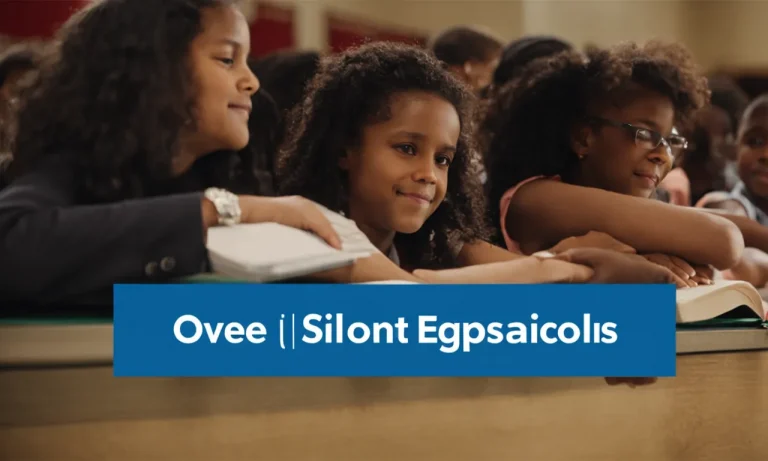Martin Luther King Jr. Day is a federal holiday that honors the life and legacy of the renowned civil rights activist. It’s celebrated every third Monday in January, right around the time many kids are back in school after winter break.
So do students across the U.S. get the day off school to commemorate MLK Day? In short – it depends.
If you’re pressed for time, here’s the quick answer: most public schools close for MLK Day, but some districts may keep schools open and commemorate the day with assemblies or lesson plans about Dr. King. Private schools set their own calendars, so it varies whether they observe the holiday.
Background on MLK Day as a Federal Holiday
Every year on the third Monday of January, the United States celebrates Martin Luther King Jr. Day, a federal holiday that honors the iconic civil rights leader. This day is dedicated to reflecting on Dr. King’s legacy and promoting his message of equality, justice, and peace.
However, it wasn’t always a recognized holiday. Let’s delve into the background of how MLK Day became a federal holiday.
View this post on Instagram
When MLK Day Became a Federal Holiday
The push for a national holiday to honor Martin Luther King Jr. began shortly after his assassination in 1968. Advocates believed that designating a day to recognize his contributions to the civil rights movement would be a fitting tribute.
It took several years of persistent efforts for their dream to become a reality. In 1983, President Ronald Reagan signed a bill into law that established Martin Luther King Jr. Day as a federal holiday. The first official observance of MLK Day took place on January 20, 1986.
What Led to MLK Day Being Enacted
The movement to establish a federal holiday for Martin Luther King Jr. gained significant momentum due to the tireless efforts of civil rights leaders, activists, and supporters nationwide. They organized marches, protests, and rallies to advocate for the recognition of Dr. King’s contributions.
Additionally, petitions were circulated, and countless individuals wrote letters to their elected officials expressing their support for the holiday. The persistence and dedication of these individuals played a crucial role in persuading Congress to pass legislation acknowledging the importance of MLK Day.
Controversy and Pushback on Establishing MLK Day
Despite the widespread support for establishing MLK Day, the journey towards its recognition was not without controversy and resistance. Some opponents argued that creating a holiday for a specific individual would undermine the significance of other national holidays.
Concerns were also raised about the potential cost of adding another federal holiday to the calendar. However, the overwhelming support and the undeniable impact of Martin Luther King Jr.’s work eventually won over these objections.
It is important to remember that the establishment of MLK Day as a federal holiday was a significant milestone in recognizing the achievements and contributions of an extraordinary leader. Today, MLK Day serves as an opportunity for individuals and communities to engage in acts of service, promote equality, and reflect on the ongoing struggle for civil rights.
Do Public Schools Have Off for MLK Day?
MLK Day, also known as Martin Luther King Jr. Day, is a federal holiday in the United States that celebrates the life and achievements of civil rights leader Martin Luther King Jr. One common question that arises is whether public schools have off for MLK Day.
The answer varies depending on the school district.
View this post on Instagram
Most Public Schools Close
The majority of public schools across the country do indeed close their doors on MLK Day. This is in line with the recognition and importance given to this national holiday. Closing schools for MLK Day allows students, teachers, and staff to participate in various events and activities that honor Martin Luther King Jr.’s legacy.
Exceptions When Districts Stay Open
However, there are some exceptions where school districts choose to keep their doors open on MLK Day. These exceptions often arise due to state or district policies that require a certain number of instructional days to be completed each year.
In such cases, alternative ways of honoring Martin Luther King Jr. and his accomplishments are implemented within the school day.
It is worth noting that some schools may choose to close for a half-day or use the day for professional development and staff training, rather than a full day off. This allows educators to engage in workshops and discussions centered around diversity, equality, and social justice.
How Schools Mark the Day
When schools do have off for MLK Day, they often organize various activities and events to educate students about Martin Luther King Jr.’s life and teachings. These can include special assemblies, guest speakers, classroom discussions, art projects, and community service initiatives.
Many schools also encourage students to participate in local MLK Day parades, marches, and volunteer opportunities. This hands-on involvement helps instill the values of equality and justice that Martin Luther King Jr. fought for.
MLK Day Policies at Private Schools
Private Schools Set Their Own Calendars
Unlike public schools, private schools have the autonomy to set their own academic calendars. This means that MLK Day policies can vary significantly from one private school to another. Some private schools choose to give students and staff the day off to observe the holiday, while others may incorporate MLK Day into their curriculum through special assemblies, guest speakers, or community service projects.
It’s important for parents and students to check their school’s calendar or contact the administration to find out whether MLK Day is a day off or a day of special programming. Private schools often communicate their policies and plans for MLK Day well in advance, allowing families to plan accordingly.
Observance Varies by Region and School
MLK Day observance at private schools can also vary by region and school philosophy. Some private schools located in areas with a significant African American population may place greater emphasis on celebrating and honoring Dr. Martin Luther King Jr.’s legacy.
They may organize events such as marches, panel discussions, or cultural performances to commemorate his contributions to the civil rights movement.
On the other hand, private schools in regions with less diversity may have a different approach to MLK Day. They might focus on educating students about Dr. King’s impact on American history and the ongoing importance of equality and social justice.
These schools may choose to incorporate MLK Day into their curriculum by discussing his teachings and the significance of his work.
It’s worth noting that some private schools, regardless of their location, may not explicitly mention MLK Day in their calendar or curriculum. This doesn’t necessarily mean they don’t recognize or value the holiday.
Instead, they may focus on promoting diversity, inclusivity, and social justice throughout the year, rather than dedicating a specific day to it.
For more information on MLK Day policies at private schools, it’s recommended to visit the websites of individual schools or contact their admissions offices directly. They can provide specific details about how they observe and commemorate this important holiday.
View this post on Instagram
The Significance of the Holiday for Education
MLK Day, also known as Martin Luther King Jr. Day, is a federal holiday in the United States that honors the life and legacy of civil rights leader Dr. Martin Luther King Jr. This holiday, which is observed on the third Monday of January each year, not only serves as a day of remembrance but also holds great significance for education.
Opportunity to Teach About Civil Rights
One of the major reasons why MLK Day is significant for education is that it provides an important opportunity for schools to teach students about the civil rights movement and the impact of Dr. Martin Luther King Jr.’s work.
By incorporating lessons and activities related to the holiday, schools can help students gain a deeper understanding of the fight for equality and the importance of social justice.
Teachers can engage students in discussions about the history of segregation, racial inequality, and the brave individuals who fought for change. They can also explore Dr. King’s famous speeches, such as his iconic “I Have a Dream” speech, and discuss the power of nonviolent resistance.
By learning about these historical events and figures, students can develop empathy, critical thinking skills, and a sense of social responsibility.
Reflect on Ongoing Struggles for Equality
MLK Day also serves as a time for reflection on the ongoing struggles for equality and justice in our society. It provides an opportunity for schools to discuss current issues and challenges related to civil rights, such as racial discrimination, systemic racism, and social inequality.
Teachers can facilitate open and honest conversations with students about these topics, encouraging them to think critically and engage in discussions about how to create a more inclusive and equitable society.
By examining the progress that has been made since the civil rights movement, as well as the work that still needs to be done, students can be inspired to become active participants in promoting equality and justice.
It is important for educators to approach these discussions with sensitivity and create a safe space for students to share their thoughts and experiences. By fostering an environment of respect and understanding, schools can empower students to be advocates for change and contribute to a more just society.
Conclusion
Martin Luther King Jr. Day is a relatively new federal holiday, but it has quickly become an important date on the calendar for many schools and educators. While most public schools close for the day, some districts buck the trend and stay open, usually commemorating MLK Day with educational activities.
Private schools also take varying approaches in observing the holiday. Regardless of whether school is closed, MLK Day represents an opportunity to reflect on civil rights, discuss Dr. King’s legacy, and connect history to contemporary issues of social justice and equality.






